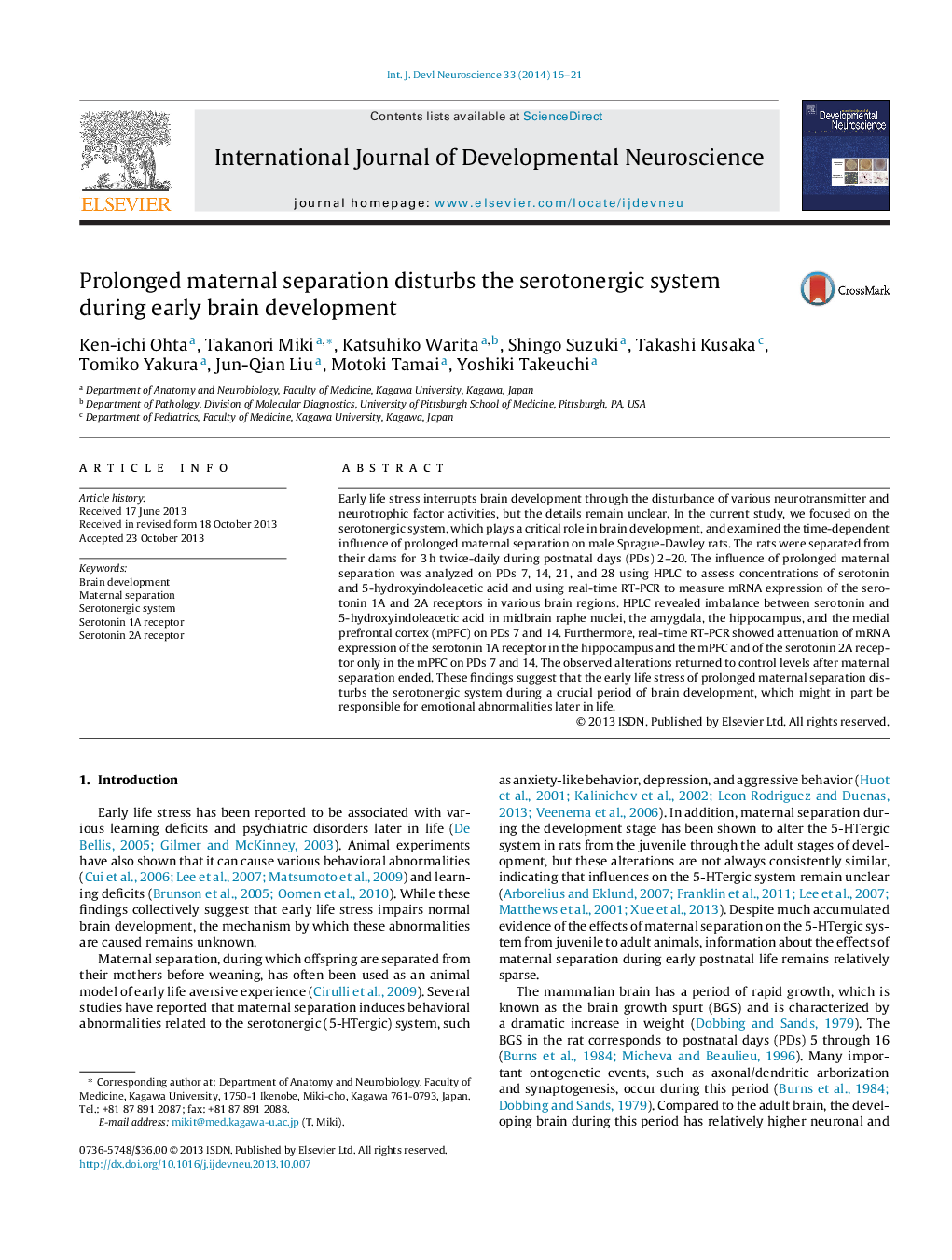| Article ID | Journal | Published Year | Pages | File Type |
|---|---|---|---|---|
| 2786121 | International Journal of Developmental Neuroscience | 2014 | 7 Pages |
•Maternal separation (MS) disturbs 5-HT turnover in broad brain areas before weaning.•MS reduces 5-HT1AR mRNA levels in the hippocampus and the mPFC during the MS period.•MS reduces 5-HT2AR mRNA levels in the mPFC during the MS period.•Our result shows that MS disturbs the 5-HTergic system during brain development.
Early life stress interrupts brain development through the disturbance of various neurotransmitter and neurotrophic factor activities, but the details remain unclear. In the current study, we focused on the serotonergic system, which plays a critical role in brain development, and examined the time-dependent influence of prolonged maternal separation on male Sprague-Dawley rats. The rats were separated from their dams for 3 h twice-daily during postnatal days (PDs) 2–20. The influence of prolonged maternal separation was analyzed on PDs 7, 14, 21, and 28 using HPLC to assess concentrations of serotonin and 5-hydroxyindoleacetic acid and using real-time RT-PCR to measure mRNA expression of the serotonin 1A and 2A receptors in various brain regions. HPLC revealed imbalance between serotonin and 5-hydroxyindoleacetic acid in midbrain raphe nuclei, the amygdala, the hippocampus, and the medial prefrontal cortex (mPFC) on PDs 7 and 14. Furthermore, real-time RT-PCR showed attenuation of mRNA expression of the serotonin 1A receptor in the hippocampus and the mPFC and of the serotonin 2A receptor only in the mPFC on PDs 7 and 14. The observed alterations returned to control levels after maternal separation ended. These findings suggest that the early life stress of prolonged maternal separation disturbs the serotonergic system during a crucial period of brain development, which might in part be responsible for emotional abnormalities later in life.
